Liberals and Tories Tied as Harper’s Negatives Rise
March 27, 2015

Along with our study on perceptions about the Hijab and Niqb released Wednesday, our latest nationwide polling explored our monthly political tracking questions.
Our findings:
Across Canada, 33% of our decided voters in our sample would vote Liberal, 32% Conservative, and 23% NDP. The Green Party polls at 6% nationwide and 13% in BC. The BQ is at 17% in Quebec, unchanged from last month. Overall, the results are largely unchanged from our previous poll in February which had the Conservatives at 35% and the Liberals at 34% and the NDP at 24%.
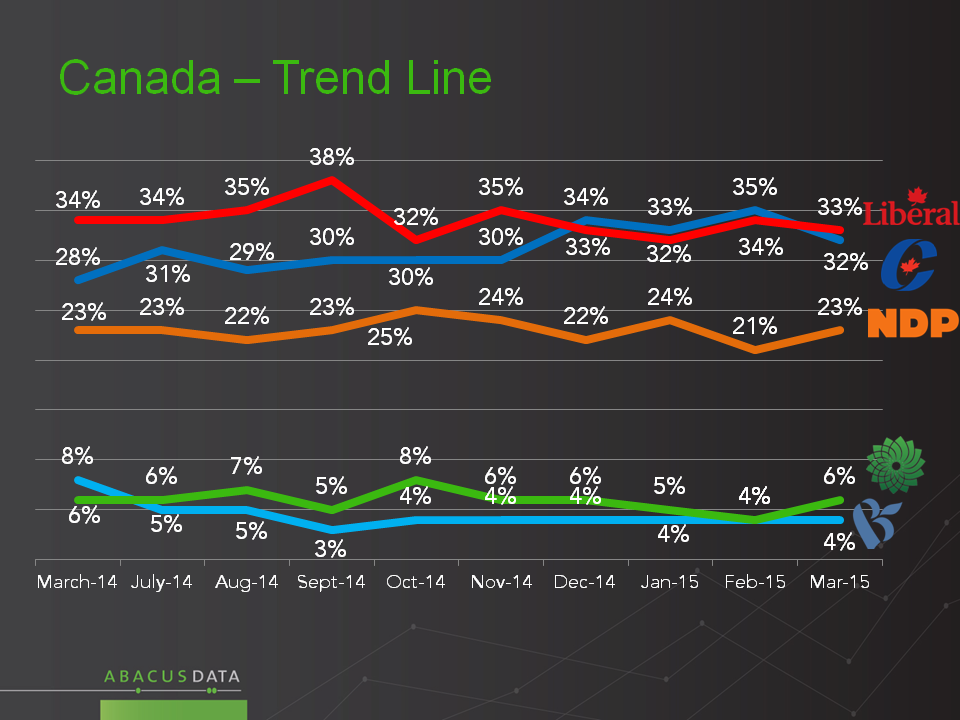
In the two provinces with the most seats at stake, the race is very competitive. In Ontario, the Liberals and Conservatives are in a dead heat with 36% for the Liberals and 34% for the Conservatives, followed by the NDP at 24%. In Quebec, the Liberals are at 28%, the NDP 27% and the Conservatives stand at 23%.
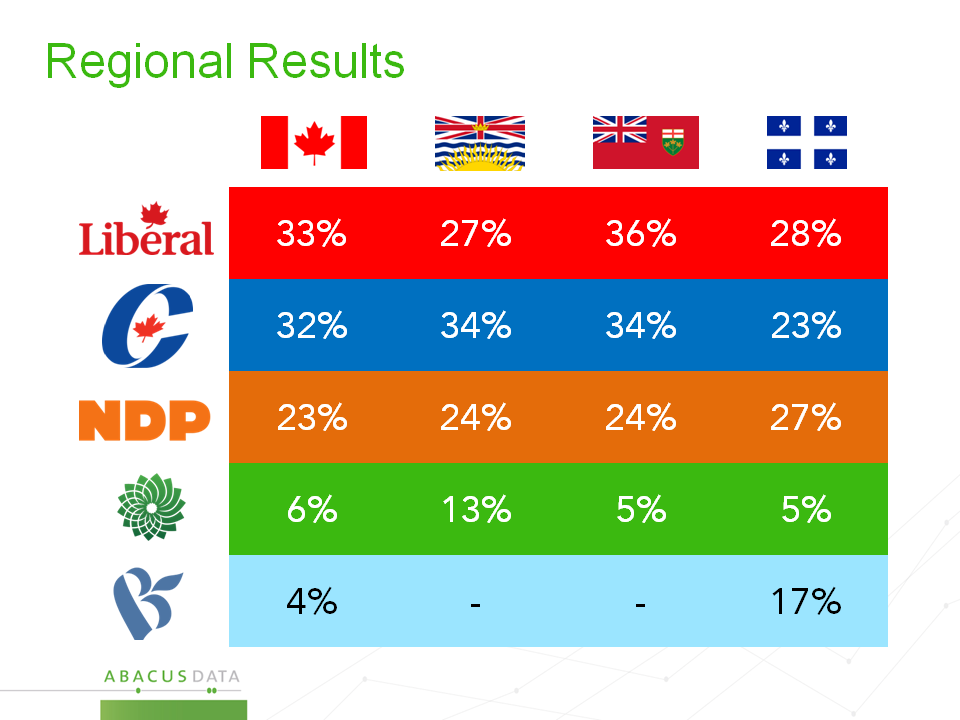
For the Conservatives, there is a slight softening of some other indicators. The view that the country is headed in the “wrong direction” is up six points from last month. “Right direction” has slid from 50% in December to 42%.
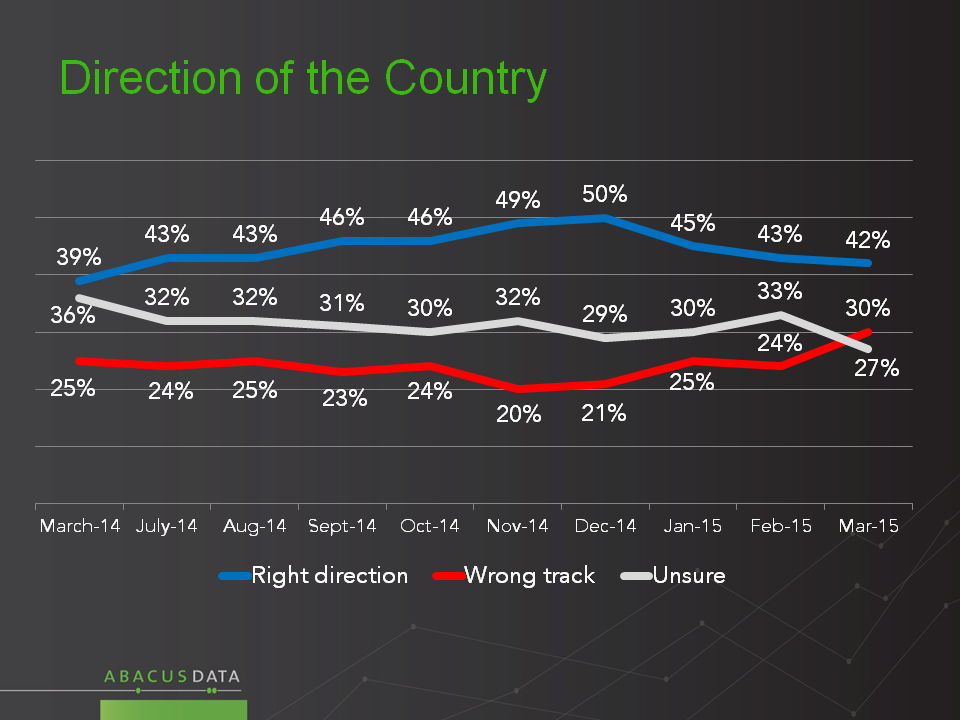
This month, 22% say the government has governed well enough that it deserves to be re-elected, 38% say poorly enough that it deserves to be voted out of office. These numbers have also shifted slightly for the worse from the standpoint of the incumbents.
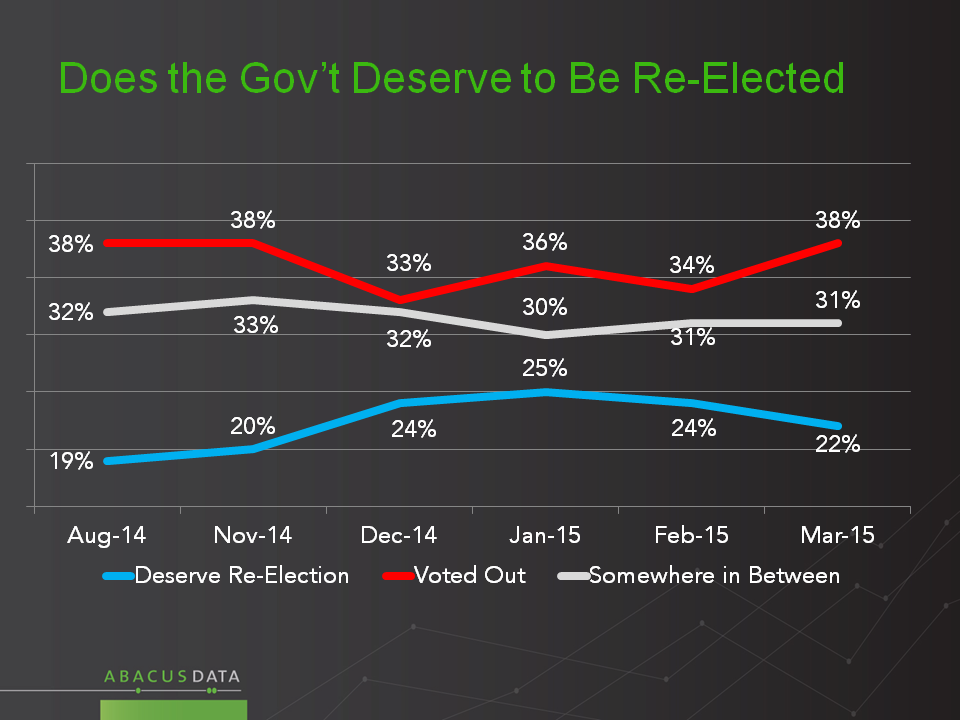
Feelings about Stephen Harper are also weaker in this latest wave of results. 45% indicate a negative impression of the Prime Minister, up five points since last month. For his main opponents, impressions have remained consistent from last month. Thomas Mulcair finds 29% positive and 20% negative impressions. For Justin Trudeau, the latest results are exactly the same as last month with 35% having a positive impression and 30% negative.
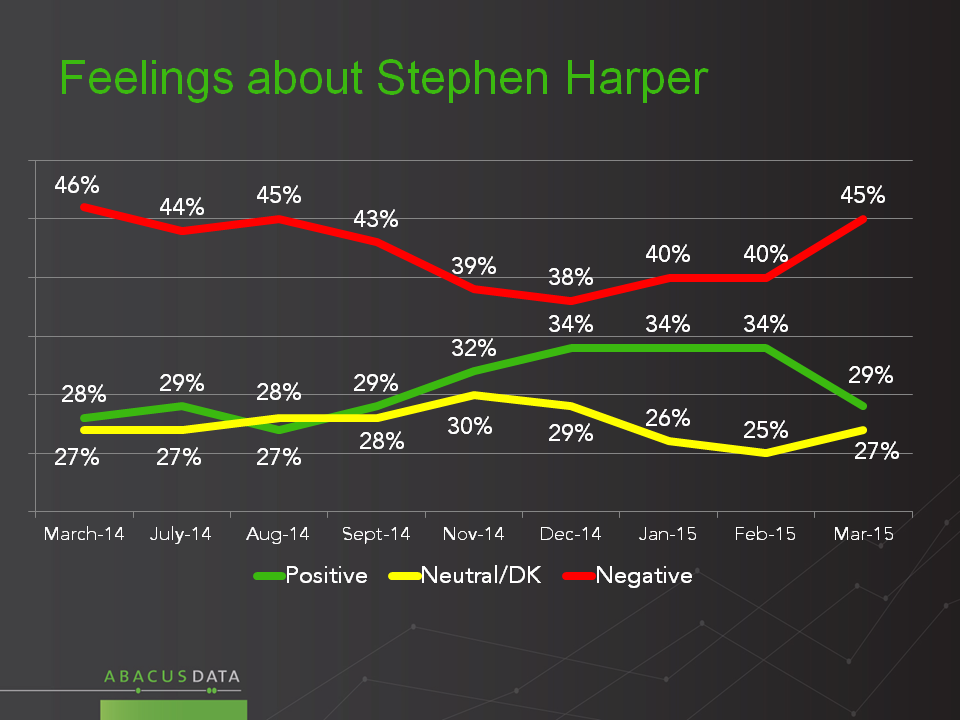
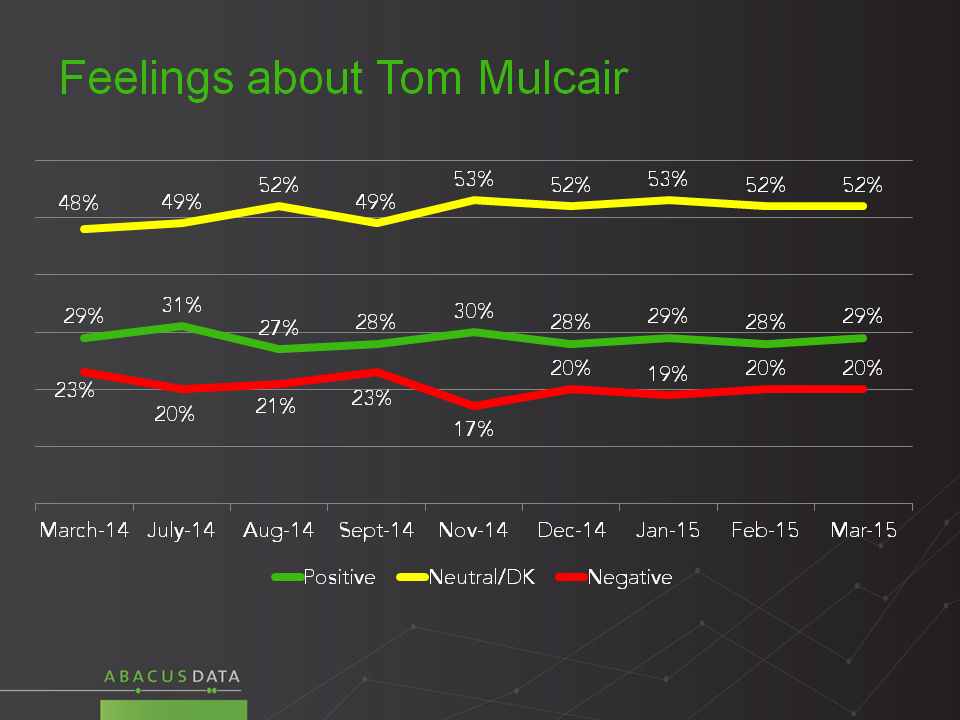
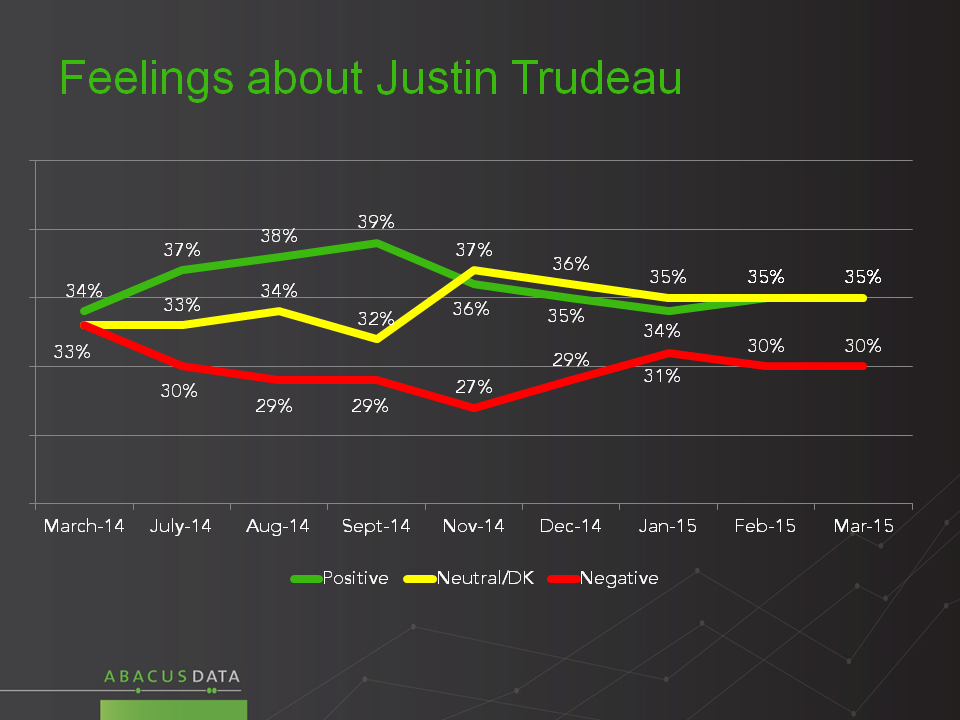
Health care, job creation, and taxes remain the top three issues ranked important by those in our sample. The percentage of Canadians ranking public safety and terrorism as a top issue continues to edge upwards, with 21% now ranking in their top three.
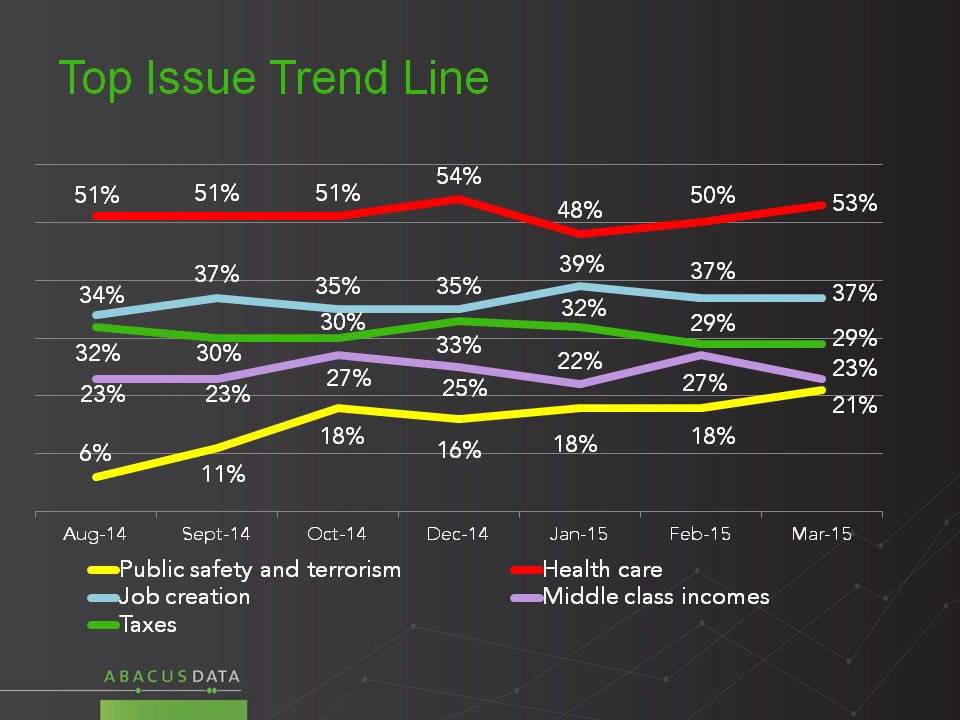
Among those who consider health care, jobs, the environment, middle class incomes, and accountability top issues, the Liberals have an advantage. The Tories lead among those who care about taxes, security and terrorism, fiscal policy and crime and safer communities. The NDP leads among those who rank poverty in their top three issues.
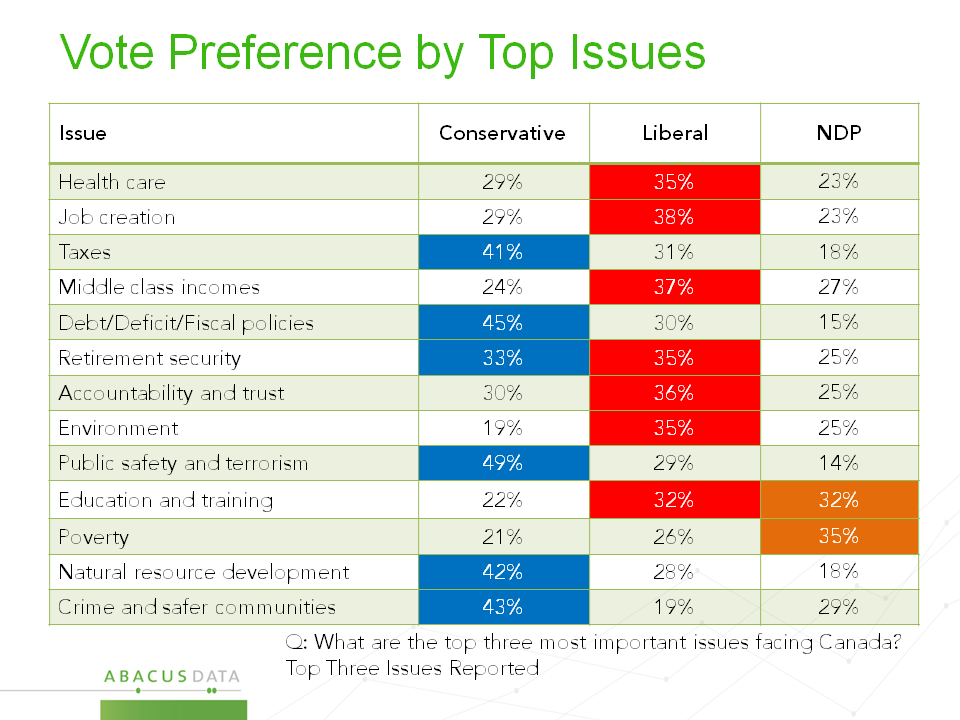
The Upshot?
The Conservatives and Liberals continue to be statistically tied in voter intentions, which resulted from a rise in CPC support and a softening of LPC support, this month’s result represent a pause in or possibly a slight reversal of that trend.
Feelings about the direction of the country have slipped a bit. Mr. Harper’s ratings are also weaker than they were last month and views of his competitors have remained stable, and more positive.
The Conservatives have an advantage on fiscal, tax and public safety issues, and the number of voters mentioning terrorism and security as a top concern continues to grow. On jobs, middle class incomes, accountability and the environment, the Liberals have an advantage. The NDP continues to struggle to be competitive with the other two party brands, and is least competitive on fiscal, tax, public safety and natural resources development issues.
Methodology
Our survey was conducted online with 1,000 Canadians aged 18 and over from March 20 to 22, 2015. A random sample of panelists was invited to complete the survey from a large representative panel of Canadians, recruited and managed by Research Now, one of the world’s leading provider of online research samples.
The Marketing Research and Intelligence Association policy limits statements about margins of sampling error for most online surveys. The margin of error for a comparable probability-based random sample of the same size is +/- 3.1%, 19 times out of 20. The data were weighted according to census data to ensure that the sample matched Canada’s population according to age, gender, educational attainment, and region. Totals may not add up to 100 due to rounding.
We offer global research capacity with a strong focus on customer service, attention to detail and value added insight. Our team combines the experience of our Chairman Bruce Anderson, one of Canada’s leading research executives for two decades, with the energy, creativity and research expertise of CEO David Coletto, PhD. For more information, visit our website at http://www.abacusdata.ca/
In case you missed it, here are some of our recent releases:
Niqabs, Hijabs, Anxiety and Accommodation
Canada’s mission against ISIL: What comes next?
Conservatives and Liberals locked in dead heat. Eve Adams defection reactions mixed.
Economic anxiety on the rise; Canadians want pragmatic policy making
Should carbon be priced? Should public opinion decide pipelines?




